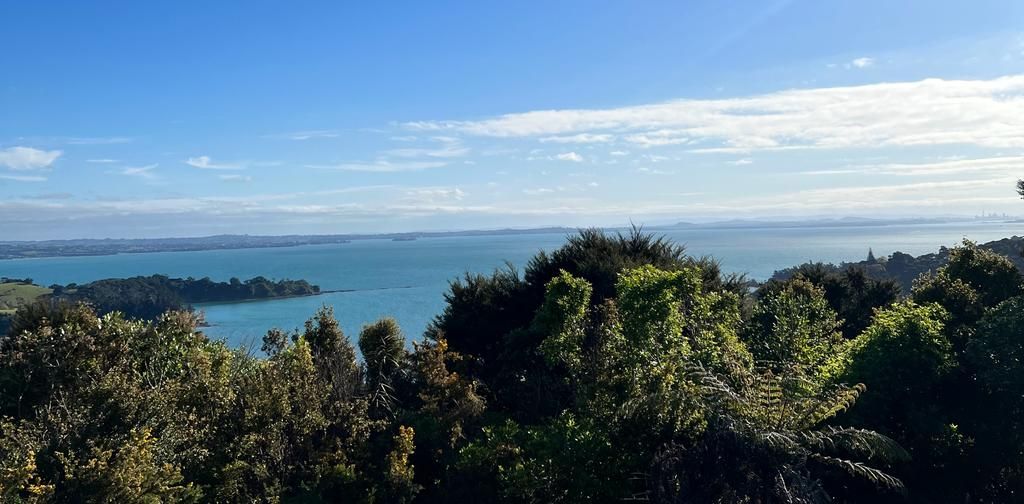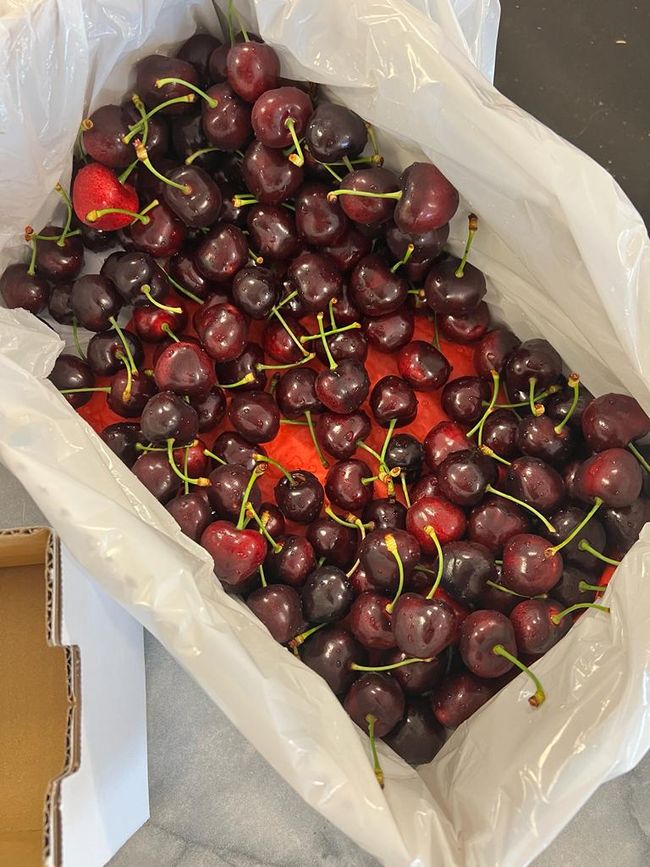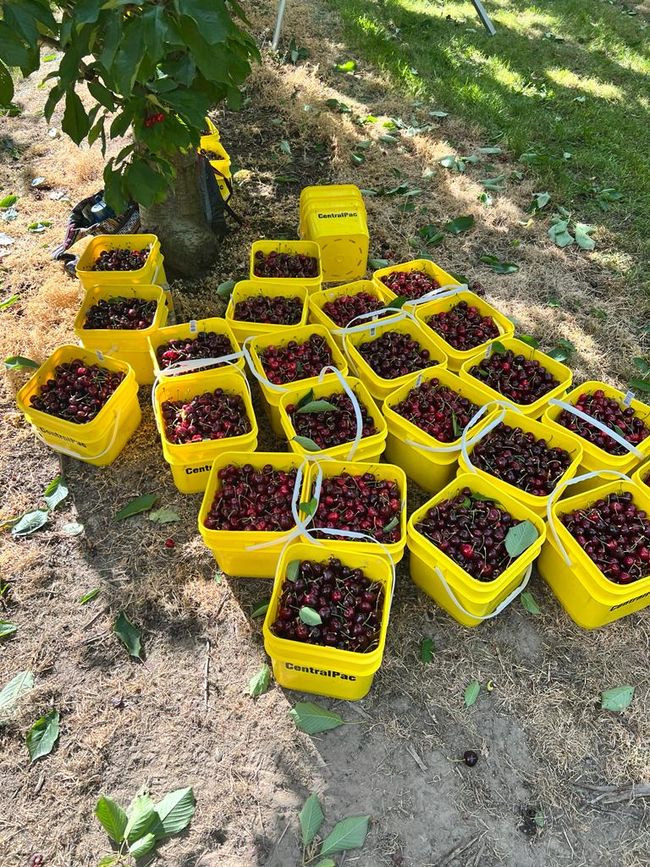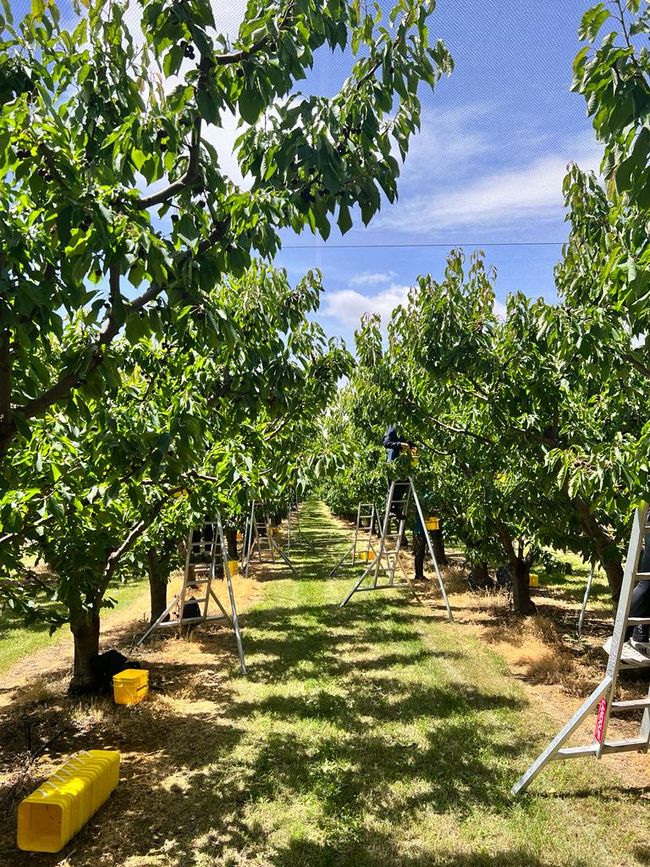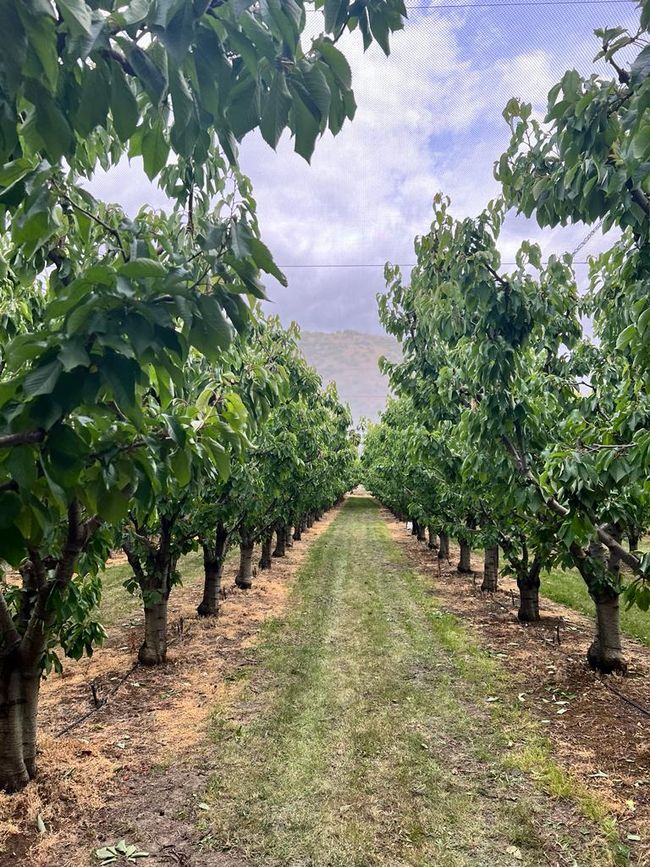
toldi-traveller
vakantio.de/toldi-traveller
Cherry-Break
Uñt’ayata: 11.12.2023
Yatiyäw qillqatar qillqt’asipxam
On the cherry orchard we work as team leaders, meaning our job is to make sure the pickers pick the right cherries (size, color, quality), use their leaders correctly and don't cheat. The pickers are paid per bucket picked (~$7 per 5kg bucket). If they are too slow, they get minimum wage ($22.70/hour). The job as a picker is quite popular among backpackers because you can earn a lot of money here if you're good. What many people forget is that it is a hard job. To be fast you have to work hard, be focused and have the right technique. In order to pick as many cherries as possible, some pickers don't want to take breaks. So it's also part of our job to make sure the pickers take breaks and eat and drink.
Since we have no experience, we received a 2-day team leader training. Here we were shown how to set up the ladder, which cherries to pick and how to check the pickers' buckets. For example, all cherries must be picked with a stem, but each cherry must be picked individually with a stem. The cherries must also be placed in the bucket and not thrown, otherwise they will be damaged. The whole thing sounds pretty complicated and it is. The reason for this is that our employer only sells premium cherries, which means that you will never find the cherries in supermarkets in Europe. The premium cherries go to Asia and the less good ones are sold in NZ.
Our employer is in CentralPac. CentralPac is one of the top 3 cherry exporters to Asia and employs around 350 pickers during the peak season (starts at Christmas). The cherry season is quite short and lasts around 6-8 weeks (December to February).
We have now worked for 2 days, meaning we have looked after a team of 12-15 pickers who pick cherries. In the two days, 11 tons of cherries were picked by 60 pickers. The first two days were pretty tiring because you have to be pretty strict with the pickers, otherwise they'll dance around in your face.
Until the cherry season is over, the blog will be quiet for now. Until then, happy reading!
Yatiyäw qillqatar qillqt’asipxam
Jaysawi

Viajes ukan yatiyawinakapa Nueva Zelanda markanxa
